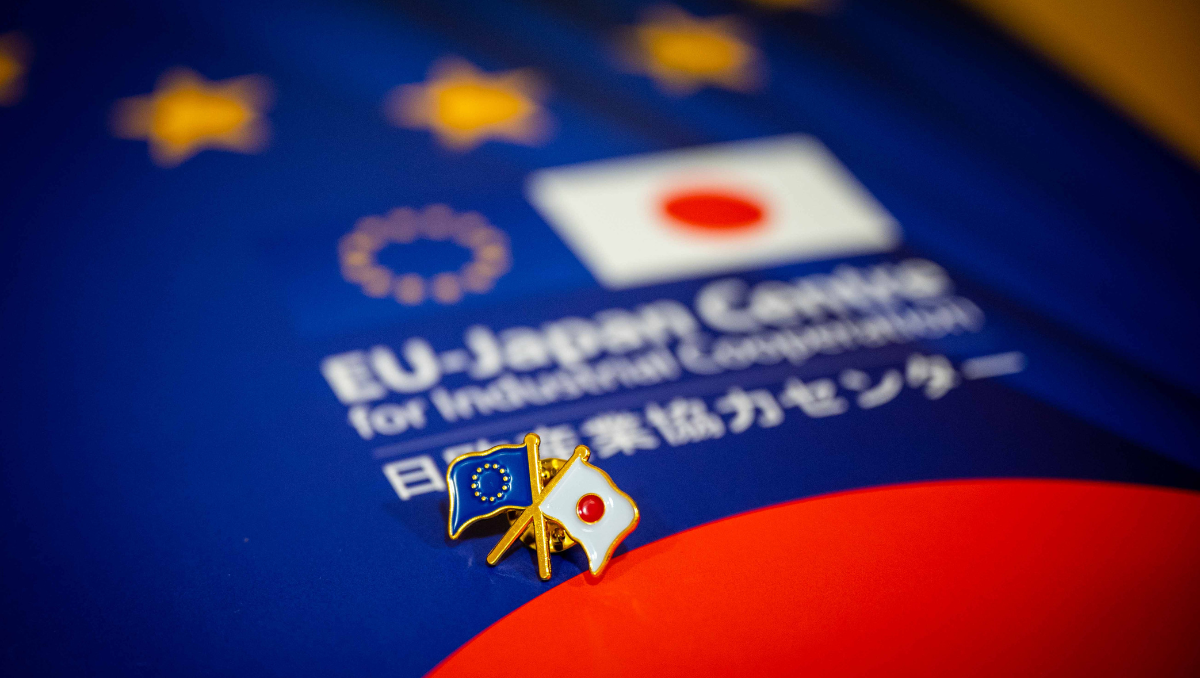Japan and the European Union are set to embark on a series of strategic defence industry partnerships. The move, which has sent ripples through diplomatic circles from Tokyo to Brussels, is set to unlock new avenues for joint research, development and production of cutting-edge defence technologies, potentially revolutionizing everything from cyber warfare systems to next-generation combat aircraft. This unexpected alliance signals a seismic shift in global security dynamics, technological innovation, military capabilities, and geopolitical balance.
Table of Contents
Rising regional tensions
With increasing volatility around China and North Korea, the Asia-Pacific region finds itself grappling with greater security concerns. This uncertain landscape has underscored the pressing need for enhanced international cooperation in defence matters, with nations increasingly recognising that security lies in alliances rather than individual strength. Going it alone is no longer a viable option.
Japan, acutely aware of these shifting dynamics, has set its sights on expanding its defence industry capabilities to bolster its national security and regional influence. The European Union is a natural partner, bringing to the table a wealth of technological expertise and a shared commitment to maintaining peace and stability in an increasingly uncertain world.
Ambitious plans by Japan and the EU
By forging closer ties with European arms manufacturers, Japan stands to gain invaluable access to cutting-edge defence technologies developed by its Western allies. With shared interests in maintaining stability across the Indo-Pacific, the two powers are uniquely positioned to leverage their complementary defence capabilities.
At the forefront of this alliance are plans to jointly develop and produce cutting-edge military equipment and technology. Japan’s cutting-edge naval technology dovetails neatly with Europe’s aerospace prowess, opening up tantalizing possibilities for joint development projects. From next-generation fighter jets to advanced missile defence systems, collaborative efforts could yield game-changing innovations.
This synergy extends beyond hardware, encompassing critical areas such as cybersecurity and artificial intelligence, with Tokyo and Brussels committed to enhancing information-sharing protocols and combatting the ever-evolving digital threats that loom over modern warfare.
This deepening cooperation not only enhances the defensive postures of both parties but also sends a clear message to potential adversaries: Japan and the EU stand united in their commitment to a rules-based international order. Their partnership would include joint peacekeeping missions and humanitarian operations, underscoring a shared commitment to global stability and crisis response.
A strategic win-win
The European Union stands to reap substantial benefits from this burgeoning partnership with Japan in the defence sector. By gaining increased access to the notoriously insular Japanese defence market, European firms are poised to tap into lucrative opportunities previously beyond their reach. This newfound market access presents a golden chance for EU defence companies to diversify their portfolios and revenue streams and bolster their global competitiveness. Moreover, this collaboration would significantly reinforce the EU’s standing as a formidable player in the international defence and security arena.
Hurdles facing Japan and the EU
While the partnership holds promise, several potential roadblocks loom on the horizon. Domestic defence industries in both regions may resist the increased competition, fearing loss of market share and technological advantages. Geopolitical tensions in the Asia-Pacific, particularly involving China, could complicate cooperation and raise concerns about technology transfers. Central to this framework is the critical task of fostering trust and transparency between partners, a process that will require open communication channels and regular high-level dialogues. Careful navigation and diplomatic finesse will be needed to ensure the success of this ambitious collaborative venture.
